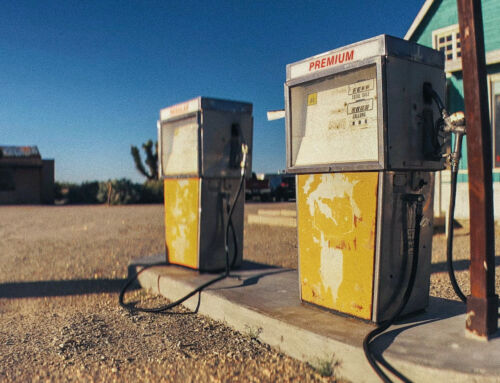View by Topic
Recent Articles
-
Congress Blocks California’s Gasoline Car BanSaturday, May 31st, 2025
-
EPA Will Keep Current Limits for “Forever Chemicals” in Drinking WaterSaturday, May 24th, 2025
-
Court Indefinitely Pauses SEC Climate Rule LitigationSaturday, May 17th, 2025
-
Maryland is About to Regulate Mold But is the Cart Before the HorseSaturday, May 10th, 2025
View by Month/Year
“Green Building Law Update” Headlines
Recent Articles & News from
Stuart Kaplow’s blog
at GreenBuildingLawUpdate.com
- EPA Will Keep Current Limits for “Forever Chemicals” in Drinking Water May 25, 2025
- Court Indefinitely Pauses SEC Climate Rule Litigation May 18, 2025
- Maryland is About to Regulate Mold: But is the Cart Before the Horse? May 11, 2025
- BEPS Redux: The Most Far Reaching Environmental Legislation of the 2025 Maryland General Assembly May 4, 2025
Subscribe to the Green Building Law Update!
Stuart Kaplow brings his expertise and extensive experience to the table with his unique digital publication, "Green Building Law Update". Subscribers receive regular updates to keep them informed about important issues surrounding Environmental Law, Green Building & Real Estate Law, as well as the emerging demand for Environmental Social Governance (ESG).
Get fresh content through the lense of Stuart Kaplow's cutting-edge expertise, innovative commentary and insider perspective. Don't miss another issue! Subscribe below.

H&M Wins Dismissal of Greenwashing Lawsuit
Abraham Lizama bought a turquoise knitted sweater in H&M’s “The Conscious Choice” collection from a retail store in St. Louis.
According to Lizama, he believed this meant his sweater was made using “more sustainable and environmentally friendly” manufacturing practices. However, he now claims this sweater is not “environmentally friendly” (a term he uses more than 100 times in his 55 page Complaint but does not appear anywhere in the H&M advertising for the sweater) and he feels so misled by the representation that he brought a nationwide putative class action over the alleged greenwashing.
Greenwashing is a term used to describe the marketing tactic of making false or misleading representations about a product or service’s environmental benefits. As we described in a recent blog post, Executional Greenwashing is a Thing, the rapid and explosive growth in greenwashing claims against businesses across a range of industries tracks the public becoming more environmentally conscious, and increasingly likely to rightly or wrongly scrutinize the environmental impact of the products they purchase.
In addition to quoting the Swedish fashion retailer H&M’s website, the Complaint also includes an image of a green Conscious Choice clothing hangtag that states “59% Recycled Polyester” as part of H&M’s alleged misrepresentations. But what appears to really be complained about in the pleadings amounts to ‘recycling’ itself. Plaintiff alleges a fake circular economy when several products in the Conscious Choice line contain up to 100% polyester, a material that does not biodegrade and disperses microfibers into the environment, although H&M describes it as using polyester recycled from PET bottles. But the plaintiff complains this does not mean “closing the loop” since while the bottles could be recycled several times over, converting them into textiles (which, on the contrary, are difficult to recycle) instead only accelerates the path to landfill. A thought provoking argument, but maybe an averment more spurious than greenwashing?
Additionally, Lizama alleges that H&M’s Conscious Choice collection misleads consumers including by making the following statements:
“You can identify our most environmentally sustainable products by looking out for our green Conscious hangtags.”
“[P]ieces created with a little extra consideration for the planet. Each Conscious Choice product contains at least 50% of more sustainable materials – like organic cotton or recycled polyester – but many contain a lot more than that. The only exception is recycled cotton, where we accept a level of at least 20%.”
H&M moved to dismiss Lizama’s Complaint for failure to state a claim upon which relief could be granted.
And the Federal Court responded affirmatively, despite the Complaint’s allegations that H&M’s Conscious Choice “labeling and advertising were false, misleading, and deceptive” by tricking consumers into thinking “the products are more sustainable,” H&M does not represent that its products are “sustainable” or even “more sustainable” than its competitors. Rather, H&M states that its Conscious Choice garments contain “more sustainable materials” and that the line includes “its most sustainable products.” No reasonable consumer would understand this representation to mean that the Conscious Choice clothing line is inherently “sustainable” or that H&M’s clothing is “environmentally friendly” when neither of those representations was ever made by H&M. Instead, the only reasonable reading of H&M’s advertisements is that the Conscious Choice collection uses materials that are more sustainable than its regular materials. Lizama’s claims of consumer deception were based on statements that H&M never made and were dismissed by the Court for failure to state a claim.
The Court further found Lizama’s allegations failed to meet the plausibility standard in this case because H&M provides consumers with copious amounts of information including specifically about the relevant comparison between recycled versus virgin polyester on its website, which Lizama admits he reviewed before purchasing his Conscious Choice clothing.
Lizama also alleged that H&M’s representations violate the Federal Trade Commission Green Guides because they imply environmental benefits that do not exist. The Green Guides prohibit marketers from making “[u]nqualified general environmental benefit claims” without “clear and prominent qualifying language that limits the claim to a specific benefit or benefits.” The Court could not have been clearer when it ruled, H&M has not made any unqualified environmental benefit claims.
Whereupon Judge Rodney Sippel dismissed the Complaint for failure to state a claim against H&M.
Not that we know if he is prone to be litigious, but it is not insignificant, this plaintiff is the same Abraham Lizama who filed a putative class action against Victoria Secret in 2002 in Missouri over how sales tax was calculated for out of state sales.
Curiously a greenwashing case was filed last week against Nike, by the same attorney in the same Missouri federal court seeking to exploit the state’s consumer friendly Merchandizing Practices Act to certify a class of U.S. customers challenging the 2,452 products in “Nike’s Sustainability Collection” as not.
This H&M case should be a wake up call not just for the fashion industry, but for all businesses. In an era when allegations of greenwashing are de rigueur properly vetted and drafted environmental marketing disclosures can withstand a challenge. In fact, a growing number of businesses have established their own private third party review of ESG disclosures and specifically environmental claims to be made by the company, including H&M which discloses a great deal of environmental information vetted before a committee of outside professionals. And that additional review (.. sometimes by attorneys, scientists, advertising executives, etc.) of ESG disclosures, environmental claims, and the like is becoming standard practice because the often threshold for legal challenges, “.. a representation likely to mislead consumers” is so low that the best limbo contestant could not pass under it.
This decision is worth reading by every business person because it is an excellent example of how a court will likely analyze the growing numbers of greenwashing claims, providing guardrails for companies and mitigating their risk.
For those attending the MSBA Legal Summit in Ocean City, Maryland, Stuart Kaplow and Nancy Hudes will be presenting “Maryland is the First State to Regulate Carbon” on Thursday, June 8 at 1:30 pm EST. You can register here.









